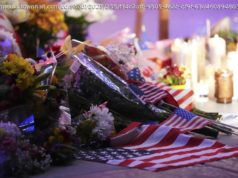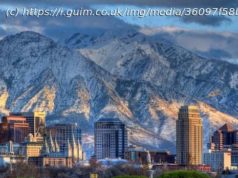Zimbabwe opposition rejects court ruling and ‘false’ inauguration, vows peaceful protests.
Zimbabwe’s main opposition leader said Saturday he respectfully rejects the court ruling upholding President Emmerson Mnangagwa’s narrow election win and he called the inauguration set for Sunday «false.»
Nelson Chamisa spoke a day after the Constitutional Court unanimously rejected the opposition’s claims of vote-rigging and said it did not bring «sufficient and credible evidence.»
Chamisa said «we have the right to peaceful protest» and that other routes will be pursued.
Last month’s peaceful election was seen as a chance for Zimbabwe to move on from Robert Mugabe’s repressive 37-year-rule. Now Chamisa alleges «a new persecution» after a deadly crackdown on the opposition.
The 40-year-old opposition leader again said he won the election and that the southern African nation has need for fundamental reforms that cannot be resolved by five more years of «vacant leadership.»
The 75-year-old Mnangagwa, a former Mugabe enforcer who has tried to restyle himself as a reformer, appealed for calm after the court ruling and in a Twitter post told Chamisa «my door is open and my arms are outstretched.»
Chamisa responded with skepticism, saying the opposition had reached out to Mnangagwa for dialogue earlier but the president did not respond.
Zimbabwe’s electoral commission had declared Mnangagwa the winner of the July 30 balloting with 50.8 percent of the vote. It later revised it to 50.6 percent, citing an «error» but arguing it was not significant enough to invalidate the win. It said Chamisa received 44.3 percent.
Chamisa’s opposition Movement for Democratic Change party late Friday issued an angry statement saying in the coming days it would announce a «vigorous program of action in response to this electoral theft of the century.»
Chamisa on Saturday, however, said he didn’t know where that statement came from. He said the party’s national council will meet next week on the way forward, and he did not directly respond to questions about the possibility of a government of national unity.
Mnangagwa, who took power in November after Mugabe stepped down under military pressure, called the election Zimbabwe’s most transparent and credible ever. The government badly needed a credible vote to help end its status as a global pariah, have international sanctions lifted and open the door to investment in an economy that collapsed under Mugabe.
Zimbabweans now await the final reports from dozens of Western observers invited into the country for the first time in nearly two decades. The observers noted few issues on election day but expressed concern over the harassment of the opposition that followed. Six people were killed two days after the vote when the military swept into the capital, Harare, to disperse protests.
Mnangagwa has said an inquiry would look into the deaths after his inauguration.
Chamisa indicated that he felt threatened as an opposition leader. «By challenging a dictatorship you are signing a death warrant,» he said. «We are ready for any eventuality.»






